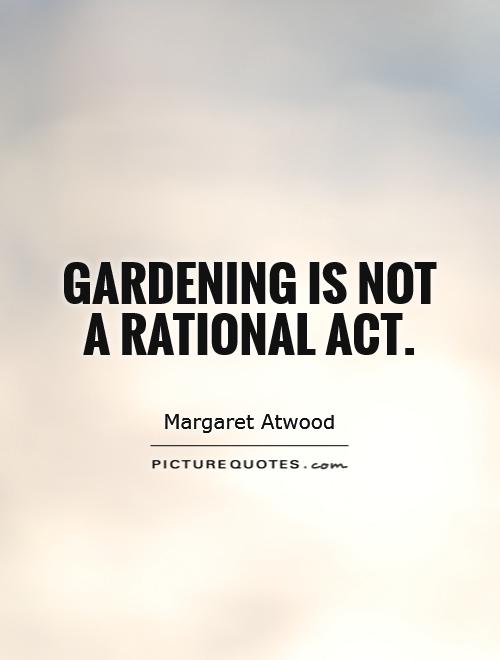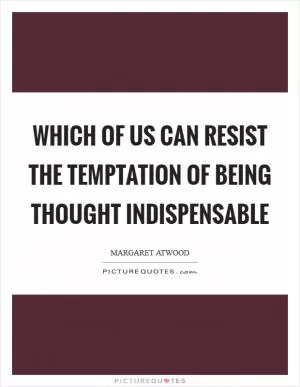Gardening is not a rational act

Gardening is not a rational act
In her essay "Gardening is not a rational act," Margaret Atwood explores the idea that gardening is not simply a practical or logical pursuit, but rather a deeply emotional and spiritual one. Atwood argues that gardening is a form of rebellion against the constraints of modern life, a way to reconnect with the natural world and reclaim a sense of agency and control.Atwood begins by acknowledging the seemingly irrational nature of gardening. She notes that, from a purely rational perspective, gardening can be seen as a futile and time-consuming activity. After all, why spend hours tending to plants when one could simply buy produce from the store? However, Atwood argues that this perspective misses the point of gardening entirely. For Atwood, gardening is not about efficiency or productivity, but rather about the joy of creation and the satisfaction of nurturing life.
Atwood goes on to explore the deeper psychological and emotional benefits of gardening. She suggests that gardening allows us to tap into our primal instincts and connect with something larger than ourselves. In a world that is increasingly dominated by technology and artificiality, gardening offers a way to reestablish a sense of connection to the natural world and to our own humanity.
Furthermore, Atwood argues that gardening is a form of resistance against the forces of consumerism and environmental degradation. By growing our own food and cultivating our own green spaces, we are asserting our independence and autonomy in a world that often seeks to control and commodify nature. In this sense, gardening is a radical act of defiance, a way to reclaim our power and agency in a world that seeks to diminish them.
Overall, Atwood's essay challenges us to reconsider our assumptions about gardening and to recognize it as a deeply meaningful and transformative practice. By embracing the irrationality of gardening, we can tap into a source of joy, connection, and empowerment that is sorely lacking in our modern lives.












 Friendship Quotes
Friendship Quotes Love Quotes
Love Quotes Life Quotes
Life Quotes Funny Quotes
Funny Quotes Motivational Quotes
Motivational Quotes Inspirational Quotes
Inspirational Quotes